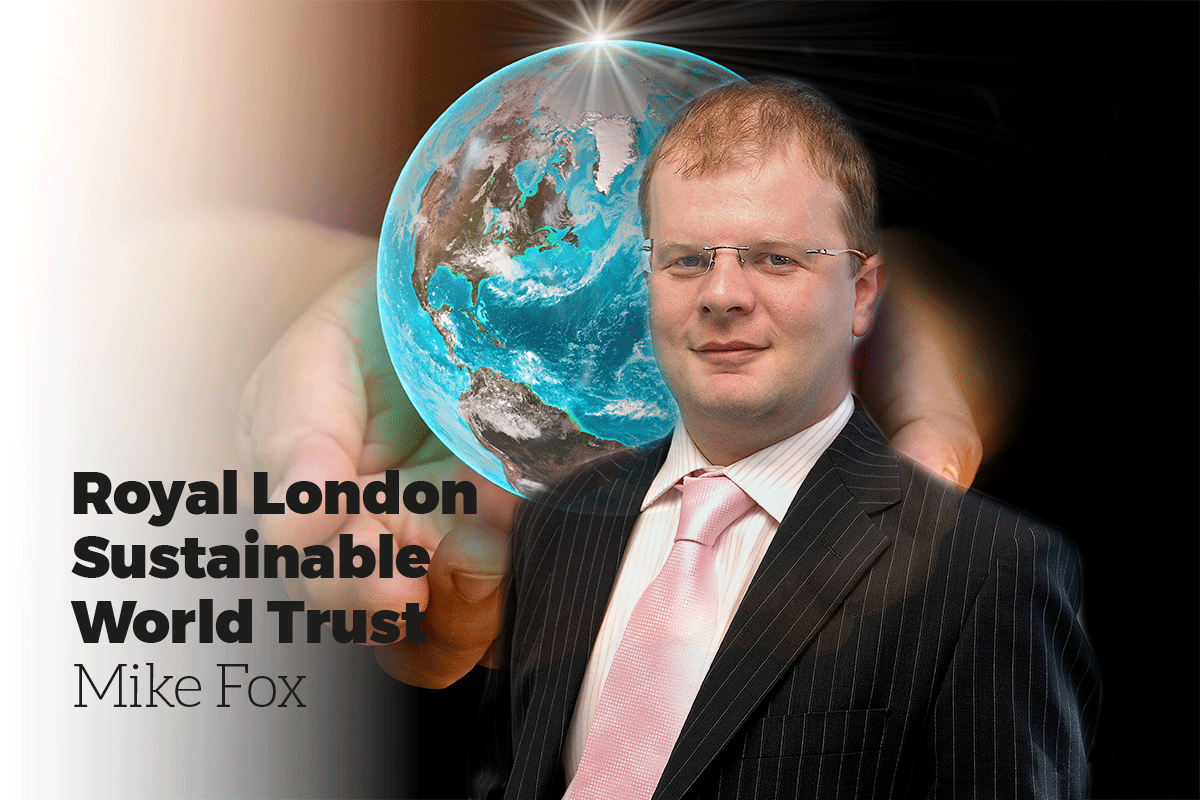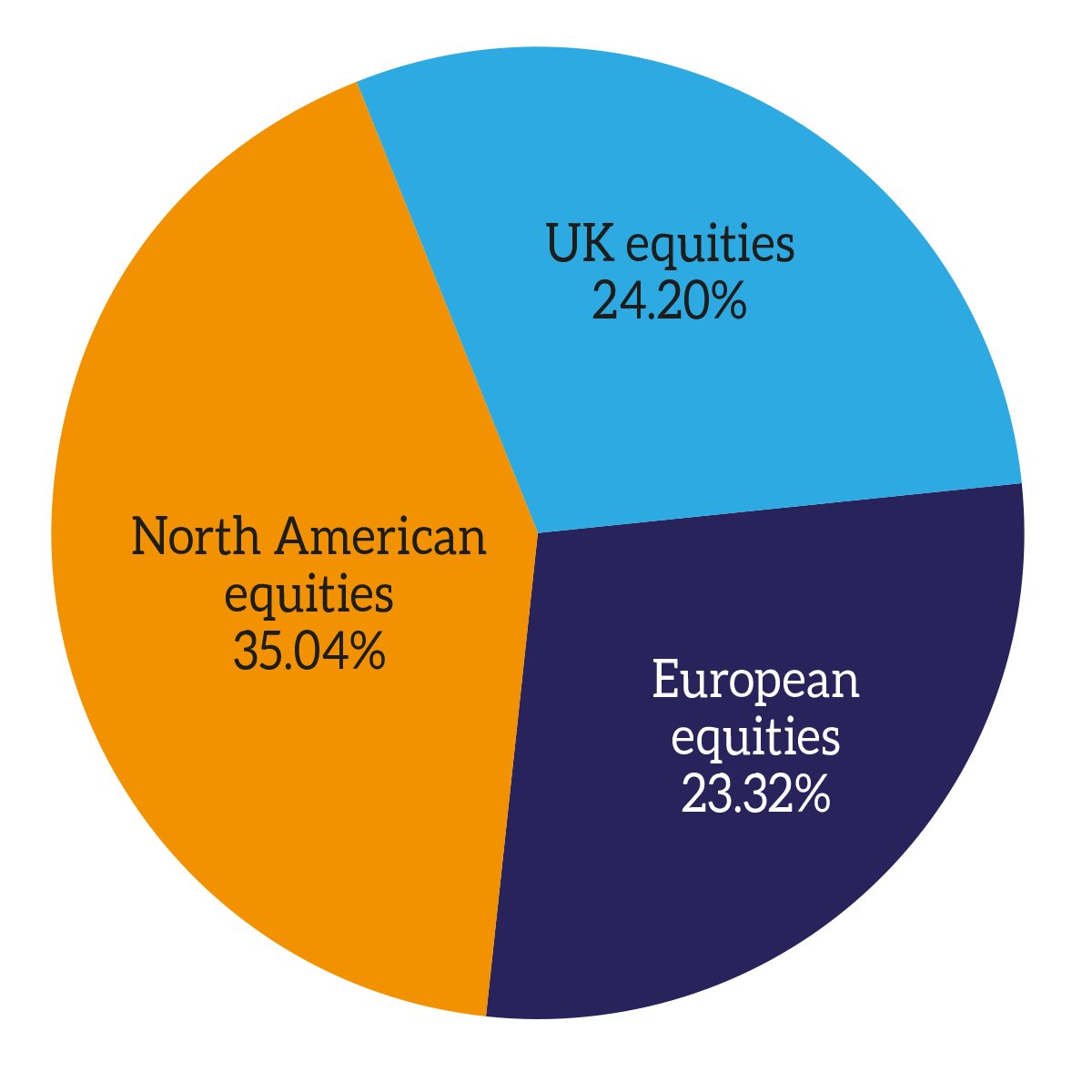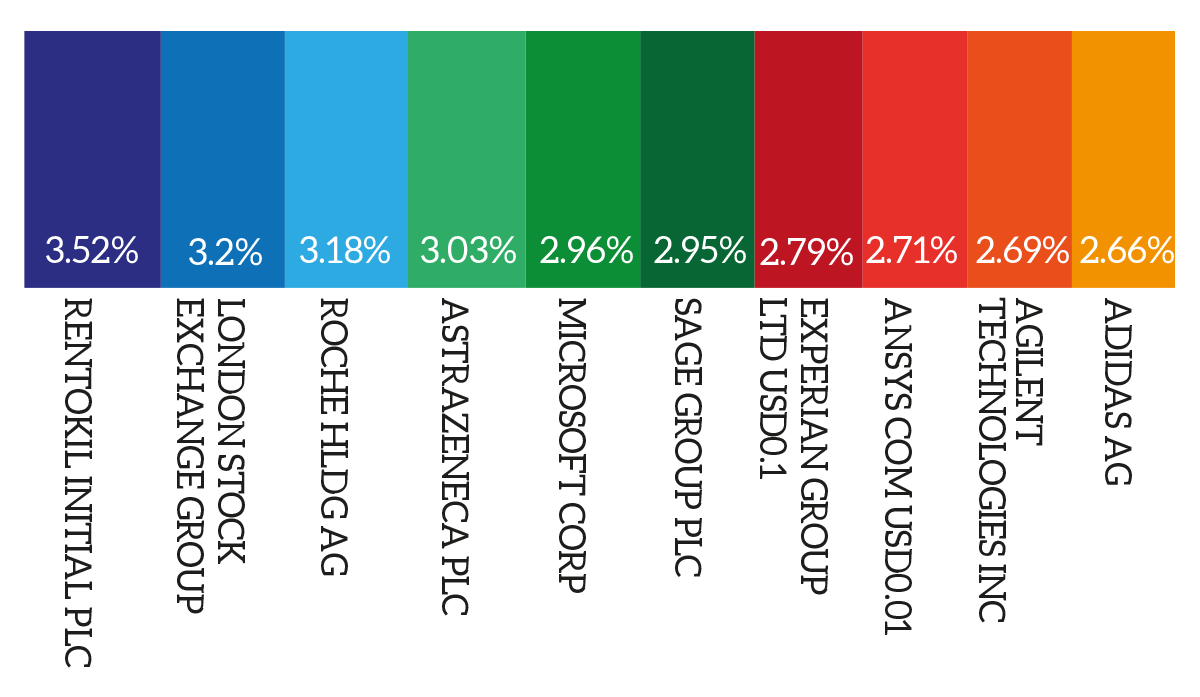Moneywise First 50 Funds interview: Royal London Sustainable World Trust, Mike Fox
Mike Fox, fund manager of Royal London Sustainable World Trust, speaks to Brean Horne about the fund’s…
23rd April 2020 17:04
by Brean Horne from interactive investor
Mike Fox, fund manager of Royal London Sustainable World Trust, speaks to Brean Horne about the fund’s objectives and his top tips for beginner investors

What is the Royal London Sustainable World Trust?
It is a mixed-asset, equity and fixed income fund [investing in shares and bonds].
It invests in companies making a positive contribution to society and the environment. This can be through their products and services, or in the way they manage the environmental, social and governance (ESG) issues they face.
We avoid investing in arms and tobacco. After that, we apply a positive test to companies, analysing their products and services to see if they offer a social benefit.
Examples of this include certain types of infrastructure, such as utilities, and healthcare or technology.
Why should people invest in the fund?
The fund’s investment objective is to achieve capital growth with some income over the medium term (three to five years).
The fund is actively managed: we favour a distinctive approach, integrating the consideration of ESG issues alongside financial analysis.
Every holding has to meet key criteria and the team actively engages with the companies in which we invest to champion best practice on behalf of our clients, challenging companies on issues such as environmental policy and corporate governance standards.
We avoid companies believed to expose investors to unacceptable financial risk resulting from poor management of ESG issues.
This fund is well suited to people looking to use their investments to improve the society we live in today.
How do you decide which stocks to pick?
One of the ways we pick stocks is by identifying companies involved in social opportunities and issues.
After that, we conduct financial analysis to determine whether the company is suitable for the fund.
We have two main criteria when analysing a company’s finances. First, will it add value? Second, does it provide long-term growth?
The fund tends to hold stocks for an average of five years– though we have held some of our stocks, such as Google, for a little over 10 years now.
What gets you out of bed in the morning?
An alarm clock! Aside from that, I think that the world is a dynamic and fascinating place, especially when it comes to investing.
It is very rewarding trying to overcome challenges that arise in different market conditions.
What is the first investment you ever made?
I started a regular savings plan when I began working, investing in a number of funds.
What have been your best investments?
Investing in cloud computing in 2013. It is an area we thought to be environmentally positive and financially rewarding.
Some of the companies we invested in at that time have quadrupled over the course of a few years.
And the worst?
The worst choice I made was British Telecom (BT). In March 2015, BT launched a service called quadplay. This was essentially a package that included telephone line rental, TV, internet and a mobile phone contract.
In theory, it was supposed to streamline how customers paid for their communication and entertainment services. The reality is that it did not really pick up.
What is your top tip for beginner investors?
Take advantage of compounding: it is the most powerful force in investing.
Compound interest makes your money grow faster because interest is calculated on the accumulated interest over time as well as on the original amount you put in.
It can create a snowball effect, as your original investments in addition to the income earned from those investments grow together.
By simply investing a small amount every month, over a lifetime that will compound to a substantial sum [see page 68].
Another important tip is to be patient. When it comes to investing, money is often made in waiting.
It can be tricky to leave your investments alone, especially when markets take a tumble.
While it is important to be vigilant and keep an eye on how your investments are performing, sometimes the best thing you can do is let them be. That way you can truly take advantage of the compounding effect.
Royal London Sustainable World Trust stats
Launch: 21/09/2009
Fund size:
£1,107.94 million
Charge: 0.77% (OCF)
Yield: 0.92%
17/04/2020
Source: FE Trustnet
The manager behind the fund
Mike Fox joined Royal London Asset Management (RLAM) in August 2013, following the acquisition of The Co-operative Asset Management by the Royal London Group. He is Head of Sustainable Investments at RLAM. Mike became a fund manager in November 2003 when he took over managing the RL Sustainable Leaders Trust.
Prior to this, he worked as a deputy fund manager at the Co-operative employee pension fund for two years and as an investment analyst for two years covering the utility, support services and media sectors.
Mike originally trained and qualified as a chartered accountant with Ernst & Young in Manchester
Sector breakdown

Source: FE Trustnet, 31/03/2020
Top 10 holdings

Source: FE Trustnet, 31/03/2020
Discrete performance of the fund over five years (%)
Period | 0-12 m | 12-24 m | 24-36 m | 36-48 m | 48-60 m |
Royal London Sustainable World Trust C Acc | 9.4 | 14.4 | 7.6 | 22.6 | 1.4 |
IA Mixed Investment 40-85% Shares | -6.9 | 5.7 | 2.3 | 15.1 | -3.3 |
Source: FE Trustnet, 31/03/2020
This article was originally published in our sister magazine Moneywise, which ceased publication in August 2020.
These articles are provided for information purposes only. Occasionally, an opinion about whether to buy or sell a specific investment may be provided by third parties. The content is not intended to be a personal recommendation to buy or sell any financial instrument or product, or to adopt any investment strategy as it is not provided based on an assessment of your investing knowledge and experience, your financial situation or your investment objectives. The value of your investments, and the income derived from them, may go down as well as up. You may not get back all the money that you invest. The investments referred to in this article may not be suitable for all investors, and if in doubt, an investor should seek advice from a qualified investment adviser.
Full performance can be found on the company or index summary page on the interactive investor website. Simply click on the company's or index name highlighted in the article.